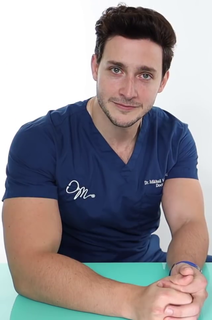A Quote by Anthony Fauci
Antibiotics are a very serious public health problem for us, and it's getting worse. Resistant microbes outstrip new antibiotics. It's an ongoing problem. It's not like we can fix it, and it's over. We have to fight continued resistance with a continual pipeline of new antibiotics and continue with the perpetual challenge.
Related Quotes
As James Surowiecki noted in a New Yorker article, given a choice between developing antibiotics that people will take every day for two weeks and antidepressants that people will take every day for ever, drug companies not surprisingly opt for the latter. Although a few antibiotics have been toughened up a bit, the pharmaceutical industry hasn't given us an entirely new antibiotic since the 1970s.
I got strep throat last week and finished my antibiotics on the Wednesday before coming here, so yesterday was my first day off antibiotics. They take a lot out of you, but it was kind of an advantage ... Instead of concentrating on everything, I was concentrating more on the breathing and relaxing. That also really helped me.
To eat chicken that was raised with antibiotics is safe, right? But long-term, relying on antibiotics as part of our livestock production is probably not the right thing to do. To not serve chicken means that there's not an economic engine that's making it possible to build up a supply of antibiotic-free meat.
GMOs are linked to digestive problems, among other things. Antibiotics and growth hormone are other additives being excessively pumped into the animals we are eating, which means we're then consuming these excess antibiotics and hormones. And some processed foods actually contain toxic chemicals, often used to prevent spoilage and enhance flavor.
Take pandemics. There could easily be a severe pandemic. A lot of that comes from something we don't pay much attention to: Eating meat. The meat production industry, the industrial production of meat, uses an immense amount of antibiotics.We're now running out of antibiotics that deal with the threat of rapidly mutating bacteria. A lot of that just comes from the meat production industry. Well, do we worry about it? Well, we ought to be.
Some experts say we are moving back to the pre-antibiotic era. No. This will be a post-antibiotic era. In terms of new replacement antibiotics, the pipeline is virtually dry. A post-antibiotic era means, in effect, an end to modern medicine as we know it. Things as common as strep throat or a child's scratched knee could once again kill.



































